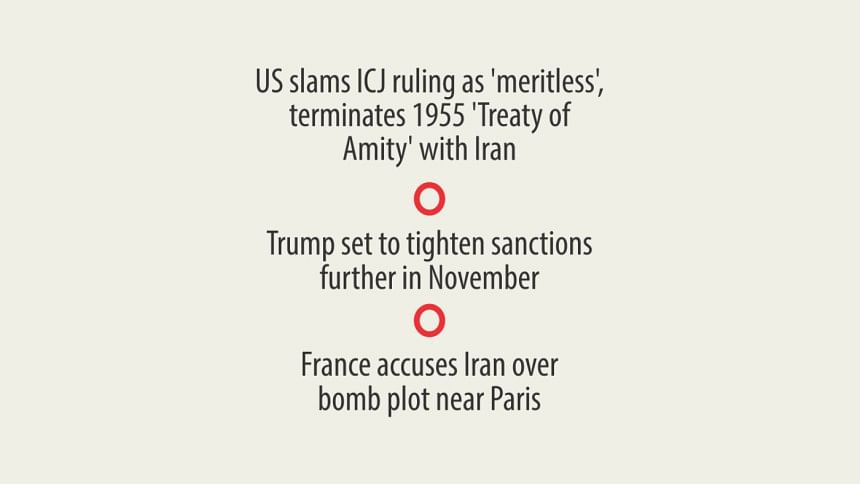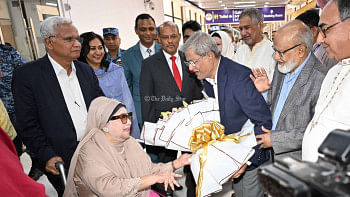Ease some Iran sanctions

The UN's top court yesterday ordered the United States to lift sanctions on humanitarian goods for Iran in a stunning rebuke to US President Donald Trump.
Tehran hailed its "victory" after the International Court of Justice ruled that sanctions reimposed after Trump pulled out of a nuclear deal put Iranian lives at risk.
The US said the case was "meritless" and only involved a few sanctions, although the decision is still likely to rile Trump.
US Secretary of State Mike Pompeo said US is terminating 1955 'Treaty of Amity' with Iran and called the ICJ's ruling a “defeat for Iran”.
It remains unclear whether the judgment will be anything more than symbolic because both Washington and Tehran have ignored ICJ decisions in the past.
The judges at the court in The Hague ruled unanimously that the sanctions on some goods breached the "Treaty of Amity".
They said Washington "shall remove by means of its choosing any impediments arising from the measures announced on 8 May to the free exportation to Iran of medicines and medical devices, food and agricultural commodities" as well as airplane parts and services, chief judge Abdulqawi Ahmed Yusuf said.
The court said sanctions on goods "required for humanitarian needs... may have a serious detrimental impact on the health and lives of individuals on the territory of Iran."
US sanctions also had the "potential to endanger civil aviation safety in Iran."
Trump slapped a first round of sanctions on Iran in August after pulling out in May from the 2015 international deal aimed at curbing Tehran's nuclear ambitions, to the dismay of his European allies. A second round of punitive measures is due in November.
Iran dragged the US to the ICJ in July, and during four days of hearings in late August, its lawyers accused Washington of "strangling" its economy.
Wednesday's ruling is in fact a decision on so-called provisional measures ahead of a final decision on the matter, which may take several more years, experts said.
Decisions by the Hague-based ICJ, which rules on disputes between United Nations members, are binding but it has no mechanism through which it can enforce its decisions.
In 1986 Washington disregarded the court's finding that it had violated international law by supporting the pro-US Contra rebels in Nicaragua. Iran in turn ignored the ICJ's ruling in 1980 to release hostages taken during the Iran hostage crisis.
Despite many bitter incidents on both sides since the 1979 revolution, the 'Treaty of Amity' remained intact.
The treaty consists of an introduction and twenty-three articles. Clause 2 of Article XXI of the treaty establishes the ICJ's role: “Any dispute between the High Contracting Parties as to the interpretation or application of the present Treaty, not satisfactorily adjusted by diplomacy, shall be submitted to the International Court of Justice, unless the High Contracting Parties agree to settlement by some other pacific means.”
Meanwhile, US on Tuesday issued a fresh warning after Paris accused Tehran's intelligence agency over a bomb plot.
France said Tuesday it was freezing assets of two suspected Iranian intelligence operatives over an alleged plot to bomb a rally in Paris three months ago.

 For all latest news, follow The Daily Star's Google News channel.
For all latest news, follow The Daily Star's Google News channel. 



Comments